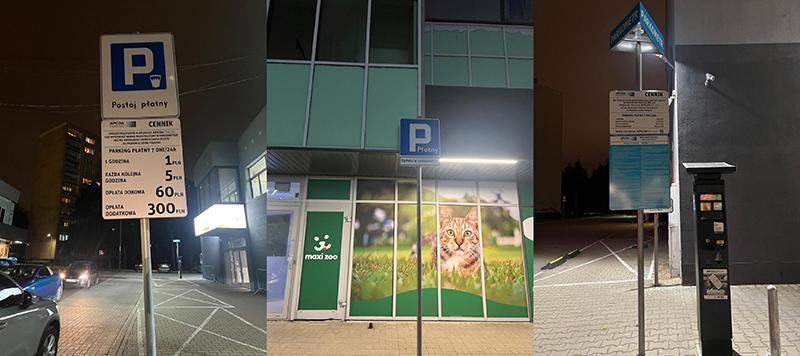Warsaw Parking Controversy: APCOA Caught Between Fraud, Fines, and Frustration
Drivers in the Polish capital have been drawn into a parking dispute that highlights both fraud by third parties and simmering consumer resentment toward private parking enforcement. At the centre of the row is APCOA Parking Polska, a subsidiary of Europe’s largest parking operator, which has been forced to defend its practices after a year of conflicting headlines.
In April 2024, APCOA issued a warning that fraudulent charge notices were being left on cars at its Warsaw sites. The company stressed that these slips, which included a non-APCOA bank account number, were not issued by its staff and had been reported to the police. Real notices, the operator explained, can be identified by a QR code that links directly to APCOA’s website, where drivers can see photos of their car, the alleged violation, and the option to pay or appeal. Inspectors never collect cash, and payments are processed electronically through APCOA’s systems.
Despite this clarification, confusion has persisted. Drivers encountering both real and fake notices say the experience has left them questioning whether private parking is designed more to manage spaces or to generate revenue at shoppers’ expense. One Warsaw motorist described receiving a charge after parking at a strip mall at seven o’clock for 5 minutes to collect medicine for his daughters illness in late September 2025. When they returned later to check, they found that the front of the mall allowed free parking while signs on the side and back now required payment. “Three months ago this was not the case,” the driver said. “This fast cash income I find shocking and disrespectful to shoppers. It will only discourage people from coming to these shops.”
Such frustrations echo a wider perception that signage is fragmented, rules change suddenly, and shoppers are given little time to register new conditions. For many, the result is an unexpected penalty that feels more like a trap than fair enforcement.
Polish law does allow private parking operators to issue so-called “opłaty dodatkowe,” or additional charges, if drivers breach posted terms. Courts treat these charges as contractual penalties, enforceable so long as signage is visible and conditions are clear. The Office of Competition and Consumer Protection, UOKiK, has intervened in past cases where operators misled drivers, but it has not banned private parking fees altogether. In 2023, however, UOKiK fined APCOA Parking Polska approximately 822,850 złoty, not for issuing charges, but for restricting how customers could file complaints. At the time, APCOA accepted only web form or postal submissions and allowed longer response times than permitted by law. The company has appealed, insisting the decision is not final, and has since expanded its official complaints portal with a promise to respond within 14 days.
A comparable case against another operator, WEIP, demonstrates the risks of poor practices. After complaints that drivers were fined despite having valid tickets, UOKiK ordered WEIP to refund affected motorists. That precedent suggests regulators will act decisively if they find enforcement is applied unfairly.
The controversy coincides with ambitious growth plans in Poland. In June 2024, managing director Maciej Zawadzki told Retailnet that APCOA now generates more revenue from ancillary sources than from parking fees themselves. He said the company operates about 1,400 facilities nationwide, half of them in retail, and is acquiring as many as 350 new sites per year. At the group level, APCOA also underwent a leadership change when long-time chief executive Philippe Op de Beeck stepped down in July 2024. He was credited with modernising APCOA’s digital platforms and expanding EV charging networks across Europe, but his departure came at a time when scrutiny of the industry’s image was intensifying.
The coexistence of fake notices and real but unpopular charges has blurred public perception. APCOA insists it is tackling fraud through QR-code verification and police cooperation, yet many consumers remain sceptical, arguing that confusing rules and shifting signage undermine trust. Retailers are also at risk, since frustrated shoppers may avoid locations where parking feels like a gamble.
For APCOA, the Warsaw situation underscores the broader European challenge of reconciling its legal right to enforce parking rules with the need to retain public confidence. While the company continues to defend its procedures and expand its network, shoppers continue to question whether the balance has tipped too far toward revenue. As one disgruntled driver put it: “The signs change overnight, and the only thing that stays constant is the sound of money being collected.”









